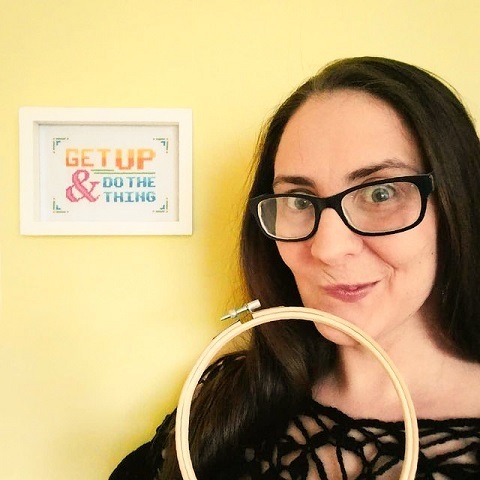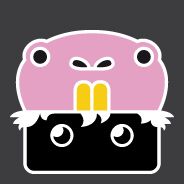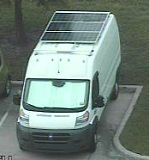I’m just wondering what the title asks: do you organize your groceries in the order you will check them out, if doing self-checkout, or arrange them on the belt/counter in a standard checkout line, in the hope that they’ll be bagged in a specific way?
I didn’t know there was any other way people do it, but just learned some people prefer to checkout/bag without pre-arranging things. I’m kind of curious to see what’s more common, or if there’s some other options I haven’t considered?
Heavy stuff first, cold things together, fragile stuff last.
This is the way
This is the way
Basically this, but with cleaning products/ chemicals last.
Last? I want those first, they are usually in very sturdy containers so putting some stuff on top is fine. They are also usually heavy and heavy stuff goes first. Also if they leak, I want them to leak out of the bottom of the bag and not over all the groceries and then out of the bottom of the bag
I see. I always put them on a separate bag so they’re always dead last. If they’re on the same bag, then it makes sense to be at the bottom.
Seperate bag seems smart. I usually don’t have a whole lot of groceries and a big grocery bag, so if I can I try to get it all in one bag.
And for me, it’s the snack I just bought to eat now that’s last.
Yeah I’m trying to remember how we used to do it (the last time I went through a normal checkout with a full shop was probably 10 years ago) and this seems right.
Gotta have the heavy stuff handy so you can put it straight into the bottom of the bags. Anything else is wasting time!
Do you have conveyor belts going straight to your fridge now?
Not OP but home delivery got very common since covid lockdowns in my country.
It’s been common for a lot longer than that in the UK, we’re very lazy :D
There is no such concept as “groceries getting bagged for you” in Germany. I have a backpack with me where I put my groceries.
Regarding your question, yes have a strategy.
The basic order on the belt is heavy to light items, so that the heavy things such cans or glas bottles go to the bottom, light stuff like yoghurt and eggs at the end of the belt so they come on top of the other groceries.
Of course this is not fixed, as light but bulky items may get a prioritized place on the belt. The worst thing that can happen is that you have to repack your backback.
However this is not all. As our cashiers are usually professionals, you will need to stategically slow them down, you want to avoid the shameful and pressuring looks of your successors. I do that by putting items inbetween the other stuff on the belt that have to be counted or weighed, such as pastry and vegetables. This gives you time to pack your stuff or rearrange in case you made mistake a step earlier.
As a European, I have never once had an extra person there whose sole purpose is putting your groceries into bags, what a strange concept.
Here in New Zealand, different supermarket chains do it different.
- One is literally called Pak n Save, you pack your own bags.
- One very often has a second person packing bags. This is a pricier store.
- And one just has the cashier drop your things into the bag after they have scanned them.
The third one seems most natural to me. Why not have them put your stuff in a bag since they are already holding it?
I can’t speak for the US, but in poorer countries (like my home country of South Africa), it’s common for someone to bag your groceries. The simple reason is because it provides extra jobs at the store. It’s the same for filling your car with petrol.
So is it customary to tip the person doing the bagging? Or maybe a designated bagger will do it faster, resulting in less wait times?
My favourite system is where I place my cart next to another one, and the cashier will scan everything while placing the item in the other cart, where I could have placed boxes if I wanted to.
It’s the same for filling your car with petrol.
But how does this person provide any value though? That person has to be paid as well, and doing something a customer can do well by themselves provides very little value. It used to be necessary, older petrol pumps had to be manually enabled or had no stop valve that person is required. With modern pumps having a person fill up your car is equally unnecessary.
So is it customary to tip the person doing the bagging?
When I was in South Africa, this wasn’t very common. I suppose you could tip them but there isn’t a very big tipping culture there.
Or maybe a designated bagger will do it faster, resulting in less wait times?
Personally, I’ve never thought that having a designated bagger was that much faster (by themselves). Sometimes you’d see someone helping the bagger, this would be faster.
But how does this person provide any value though?
It’s not necessarily about the value they provide. Since unemployment is so high, if you can create extra jobs, the business will do it. When I left, unemployment in my province was at 50%.
It’s the same for self checkout. You could easily do it yourself but you’d lose out on potential jobs (bagger and cashier). This article is really good at showing why these systems are the way they are.
I always thought that such jobs would be best replaced with universal basic income. Maybe even not universal, and only for those who need it
It’s not necessarily about the value they provide
That’s how a business works though, people do work of value which the business provides to its customers. I know nothing of the situation is SA but ordering business to lose more money doesn’t seem like the way to go. I’ll agree with the other comment calling for UBI.
That article wasn’t helpful though, just a whole lot of people talking with too much conflict of interest.
In Australia the checkout person does the bagging themselves, no second person required.
It’s wild for me how different that peer pressure in the line is in different countries. In Spain people would even try to make you slow down and take your time when they notice how stressed you are with trying to pack everything fast 🥲 that’s very considerate of them
It’s true Germans are not known for being very patient and easily get annoyed when standing in line, but I may have exaggerated a bit ;)
Oh absolutely. They are arranged in the trolly before even getting to checkout too but you are querying a crowd on Lemmy that is going to be biased towards programmer / engineer types that tend to function well in their world due to compulsive features often considered pathologic by others.
Initially I felt bad about being considered pathologic, but it’s right there in the word: path o’ logic. I know it’s not the etymology but I’m going to embrace it. To hell with those pathodumdums.
You reminded me of when a partner and I entered a grocery store to buy sun screen lotion. I narrated my thoughts figuring out where it would be and found it immediately. She commented on how she’d never have found it that quickly. All I did was make logical deductions based on my knowledge of grocery stores.
Truly, people think differently. What is natural to me might be alien to another.
you are querying a crowd on Lemmy that is going to be biased towards programmer / engineer types that tend to function well in their world due to compulsive features often considered pathologic by others.
I feel personally attacked. :D
Edit: also to answer the question. Yes I absolutely arrange things on the checkout belt.
I group these items: Liquids. Fridge. Cans and bottles. Fruit and veg, heavier ones first so the potatoes don’t crush the berries. Frozen gear near fridge gear. Chemicals / cleaning gear separate.
I should add that I’m buying for a lot of people so the shopping trips tend to be large and there would be a full bag of most of those groupings.
Heavy items such as milk goes in first, so that they will also be at the bottom of my backpack. Light and fragile things, such as salad goes last.
My recommendation is to wait until you get home to make the salad. That way you’re not eating a big salad out of a backpack in the park like a crazy person.
Definitely drink milk from the bottom of your bag though, that’s fine and normal.
Of course I do, is there another way? How else would one determine packing order and avoid crushing the more delicate stuff like tomatoes and eggs under the weight of the heavier items.
Same with stuff that needs to be frozen or refrigerated. Makes it that much easier to put things away when you’re back home.
I used to work at a checkout operator, long ago.
I ALWAYS order the belt, cans and heavy stuff goes first, then usually cold/frozen stuff, veg and fruit, baking products (flour, sugar etc), then finally the light/soft stuff.
We have hand scanners you can take with you through the store. I pack everything into collapsible crates as I go, so at the checkout it’s just putting the scanner back and paying.
My only hard rule is refrigerated/frozen items together so I can handle that bag first when I put groceries up.
Heavy first, light last. This way the light stuff won’t get squished. And we bag stuff ourselves here, we aren’t that lazy.
The stuff at the top of the basket goes first so I can reach the stuff at the bottom?
Have you considered using one of those carts you can open from the bottom?
Not sure what you’re referring to, but I’m guessing only because we don’t have those here. People either bring their own cart or use a basket
Soft and fragile things on top, heavy things on the bottom, square things in the middle, circular things on the outside, cold things in one bag, non-cold-things in another bag, and anything that can’t be organized in this way in a third bag.
I just scan and bag as I go in the supermarket and pay at the end. Much easier than staying in line and bagging everything at the end.
A Tesco where I lived introduced this system couple of years ago, but since they left the country entirely no other supermarket chain picked it up; not sure why, to be honest, doesn’t seem much more prone to theft than regular self-checkouts.
You reminded me that some third-world countries like the US have people packing your groceries for a few dollars a day
I’m a car-free city dweller, so I always put heavy stuff first so I can pack it in my backpack, lighter stuff next to fill my reusable bags, with fragile stuff last so it’s packed on top.
Makes it easy to walk or bus home with everything.
I keep cold things or products that are identical or related together most of the time. So all the bags of chips, or all the cans, all the meats, all the frozen stuff, etc.
And I guess like the other guy, I usually stick fragile stuff on one end or the other.

















